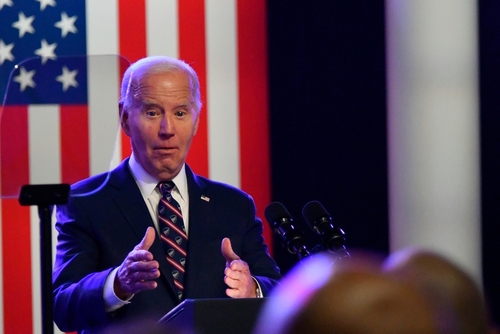In a highly controversial decision, the Biden administration has awarded a $10 million grant to the AIDS Healthcare Foundation (AHF), a non-profit accused of running "inhumane" housing in Los Angeles. This grant, part of the U.S. Department of Housing and Urban Development's (HUD) Tenant Education and Outreach (TEO) program, aims to empower low-income tenants to advocate for better living conditions. The funds will be distributed to various tenant organizations over the next two years to help them hold landlords accountable for property management.
AHF, initially a healthcare organization, became involved in housing in 2017, purchasing several residential hotels in Skid Row with the goal of providing affordable rental options. However, their properties quickly gained notoriety for substandard living conditions. According to a Los Angeles Times investigation, tenants faced issues such as cockroach infestations, broken elevators, violent crime, and frequent water shut-offs that forced residents to resort to extreme measures, including defecating in wastebaskets.
https://twitter.com/MedGold_/status/1806569902502764734
These issues have led many to label AHF as a “slumlord,” a sentiment echoed in tenant lawsuits and media reports.
Despite these allegations, HUD defended the decision to award AHF the grant, asserting that the non-profit was part of the best-qualified team to handle the disbursement of funds aimed at tenant advocacy. HUD spokespersons claim the program is vital for strengthening tenant organizations to help preserve affordable housing.
Surprise! #Biden living under BLACK ROCK.. #CRIMEFAMILY #KAMALACARELESS https://t.co/GoXutLuIXg
— TRUMP__DOGE__USA (@R13Fontaine) September 11, 2024
AHF's dual role as a landlord and tenant advocate has raised concerns of a potential conflict of interest. Critics argue it is problematic for a non-profit managing properties often cited for violations to now be tasked with funding advocacy groups intended to hold similar landlords accountable.
Nevertheless, HUD maintains that AHF’s organizational capacity and experience in the field justified its selection. The administration’s broader aim is to protect renters and give them a stronger voice in improving housing standards, aligning with the goals set out in Biden’s "Blueprint for a Renters Bill of Rights".
While the Biden administration's efforts to empower tenants are laudable, the choice of AHF as a key partner has ignited a political firestorm. Critics from both sides of the aisle have questioned the wisdom of awarding millions to a non-profit accused of such severe mismanagement. Tenant groups, housing advocates, and political analysts alike will be monitoring closely to see how AHF handles its new responsibilities.
As the program progresses, AHF will be under intense scrutiny to prove that it can not only administer funds effectively but also address the myriad of issues within its own properties. Whether the grant will ultimately serve to improve conditions for low-income tenants or deepen existing controversies remains to be seen.

